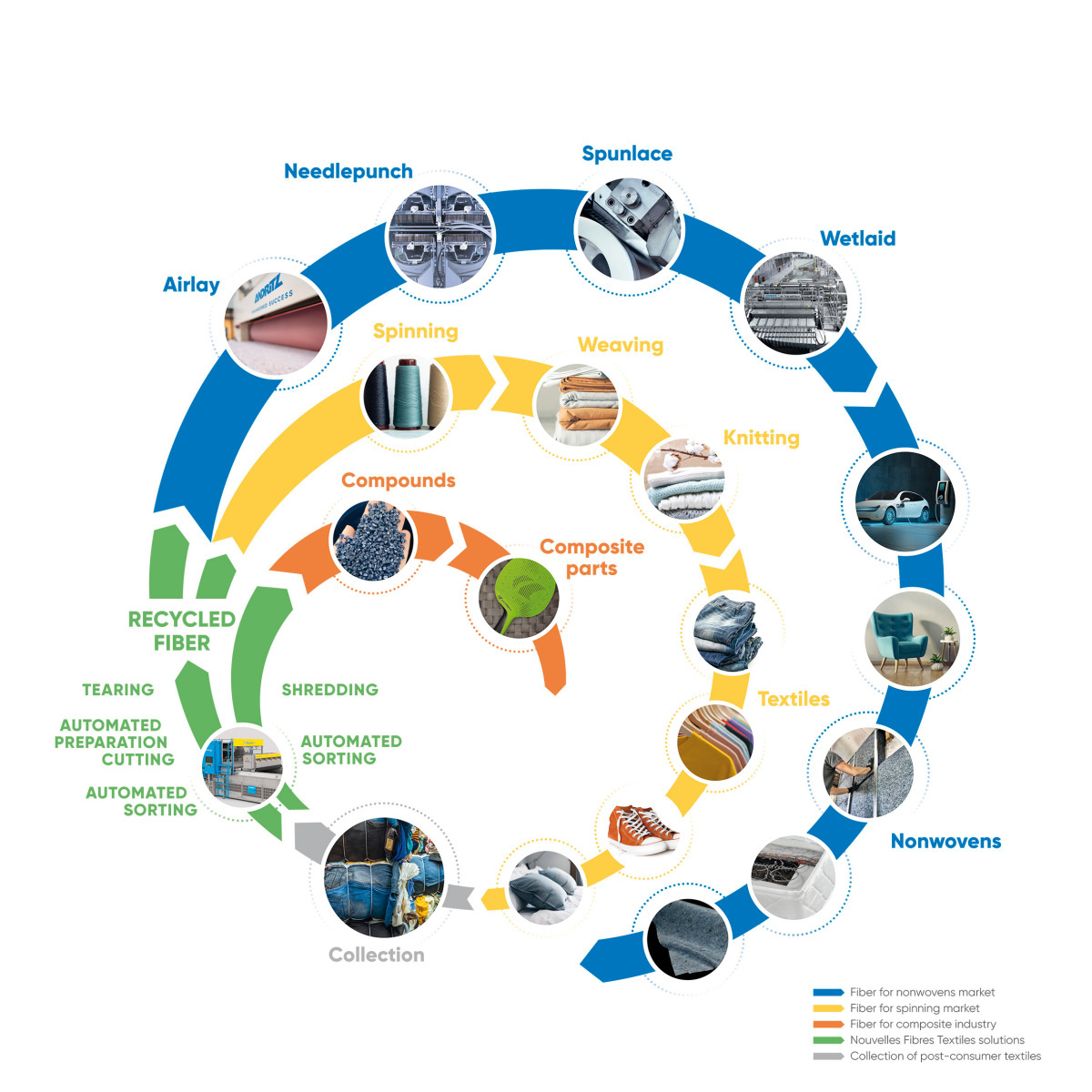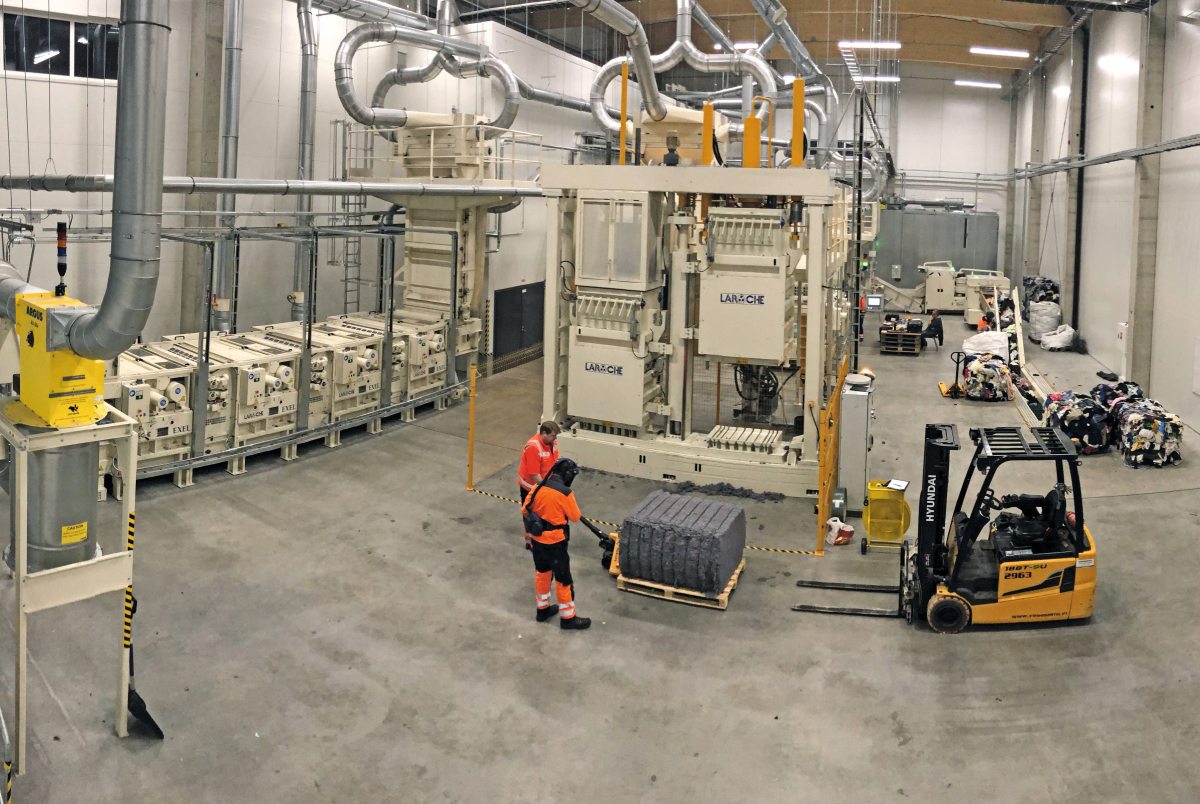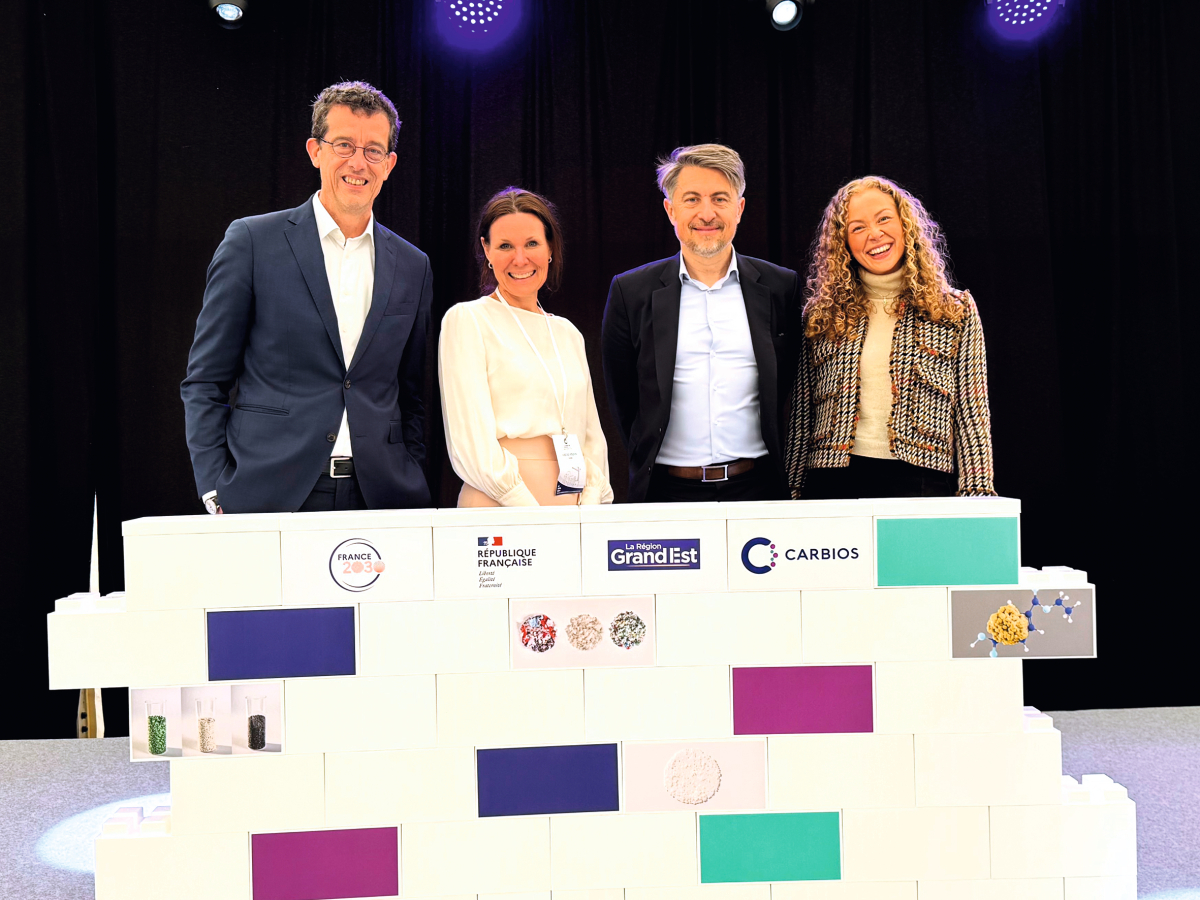ANDRITZ, Nouvelles Fibres Textiles and Pellenc ST enter partnership for an innovative approach in textile recycling
28.04.2023International technology group ANDRITZ entered an ambitious partnership with Pellenc ST and Nouvelles Fibres Textiles to set up the very first industrial-scale automatic textile sorting line in France combining automated sorting and recycling technology.
 Nouvelles Fibres Textiles circular and sustainable ecosystem with ANDRITZ technological solutions
Nouvelles Fibres Textiles circular and sustainable ecosystem with ANDRITZ technological solutions
© ANDRITZ
The partners have expert knowledge from decades of experience in sorting technologies (Pellenc ST), textile machinery and processes (ANDRITZ), as well as post-consumer textile value chains from sorting to manufacturing (Nouvelles Fibres Textiles newly founded by Les Tissages de Charlieu and Synergies TLC).
The new textile sorting line being built is the first to combine Pellenc ST's automated sorting technologies with ANDRITZ’s recycling technologies. It will process post-consumer textile wastes to produce recycled fiber engineered for the spinning, nonwoven and composite industries. Starting operations in mid-2023, it will serve as a production line for Nouvelles Fibres Textiles, as an R&D line for the three partners, and as a test and demonstration center for their customers.
Nouvelles Fibres Textiles aims to become a reference in both industrial grade material production and industrial scale post-consumer textile sorting, thanks to innovative technologies with hard point removal providing pure fibers, selective colors, and differentiated fiber types.
Nouvelles Fibres Textiles’ partners also work closely together in R&D at the ANDRITZ Laroche and Pellenc ST technical centers to keep pushing technical boundaries.
Eric Boël, President, Nouvelles Fibres Textiles, comments: “We are very proud to announce the launch of the Nouvelles Fibres Textiles partnership. Several years of R&D involving key players from both textile and household waste management industries made this possible. We all shared our knowledge and expertise to promote on-the-ground circularity for textiles by full integration of the value chain. This guarantees traceability of recycled materials, mitigates the textile and composites industries’ environmental impacts and reduces their carbon footprint while creating meaningful jobs.”



